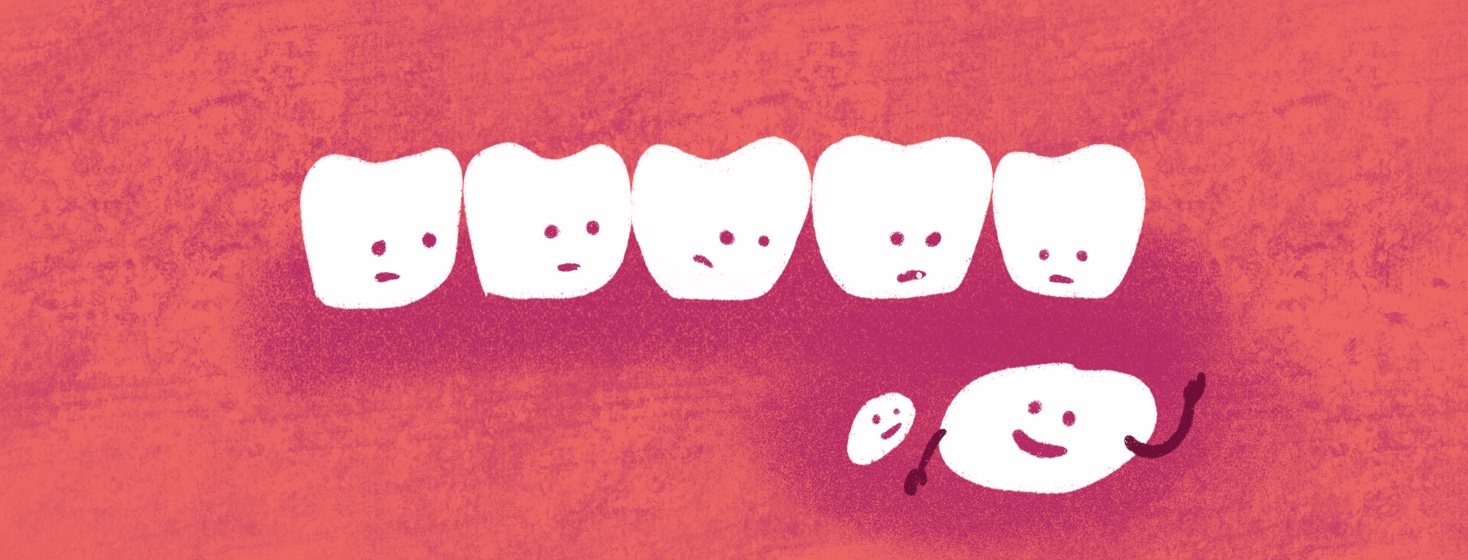Bisphosphonate Induced Osteonecrosis of the Jaw (BIONJ)
Did you cringe a little before you opened this post? I would have before my diagnosis of bisphosphonate induced osteonecrosis of the jaw (BIONJ) and I've been contacted by quite a few people who told me that this side effect was one of their fears while taking a bisphosphonate. I was pretty freaked out about it too, until I was diagnosed with it and did some research. In my view, the only way to reduce the fear of the unknown is to gather information to understand it, so this is my effort to share the wealth.
Before you read any further, please remember that I'm not a doctor or any kind of medical professional. My efforts to interpret what I've learned about BIONJ are my opinions and interpretations only, so if you have questions, please talk to an expert! I've included a reference below to a book written by Dr. Robert E. Marx, who happens to be my doctor and who is acknowledged as an expert on BIONJ.
What is it?
Let's start with the medication that causes it. Bisphosphonates are the medications that those of us with stage IV metastatic breast cancer, especially those of us with mets to the bone, receive to mitigate the damage to our bones from cancer in our bones. I started on Xgeva, a shot to the belly monthly, and then was switched to Zometa, a monthly infusion. There are other bisphosphonates, including Prolia, which is a quarterly injection, along with a few others. This class of medication is often prescribed for osteoporosis, osteopenia, and other bone disorders outside of cancer.
How it works
The way bisphosphonates work is to interfere with the cell death of the bone cells, a normal biological function. By doing so, the cancer cells are stymied in their efforts to absorb or recruit the bone cells to become cancerous. The interference means that the old cells (osteoclasts) are prevented from becoming osteoblasts, which is normally how bone remodels. There are a few bones in the body that are more sensitive to this interference, namely the jaw bone, the femurs, and the small bones of the feet. For purposes of this article, I'm focusing on the jaw bone, which is 10 times more sensitive than any other bone in the body. If you are taking a bisphosphonate, please make sure your docs are watching your femurs and feet.
The formal definition of BIONJ is:
"Bisphosphonate-induced osteonecrosis of the jaw refers to a condition characterized by the exposure of the bone in the mandible or maxilla persisting for more than eight (8) weeks in a patient who has taken or currently is taking a bisphosphonate and who has no history of radiation therapy to the jaw."1
Inflammation and pain
What does that mean? Basically, the jaw bone is exposed inside the mouth and is no longer covered with gum. The way I understand the basis of this is because when the bone itself is dead, there is no blood flow to that portion of the bone, thus the gum or any other skin covering the bone dies as well. The good thing is that dead bone doesn't have nerve endings, so it doesn't hurt, per se. For me, because of the exposed bone and the parts of the gum dying, I had openings into pockets of gum where bacteria entered, and then I had inflammation and a lot of pain.
Current treatment plan
For me, at Stage I of BIONJ, I'm on surveillance and antibiotics. Once the initial inflammation was addressed, I'm left with some sensitivity to cold/hot and I have to be careful to watch for food getting stuck around the exposed bone. I get to see my oral surgeon quarterly for them to track the progression. At the higher stages, more intervention is necessary, such as debridement (cleaning or cutting away the dead parts) or even removing parts of the jaw bone and teeth and then rebuilding the structure with bridges and dentures.
Biggest takeaway
My biggest takeaway from this experience is that medication we take for good reasons may have consequences or side effects that we need to be aware of and careful about. It doesn't mean that medication isn't useful or necessary or needed, just that the consequences are.
Are you on bisphosphonates? What's been your experience? Share below in the comments!

Join the conversation